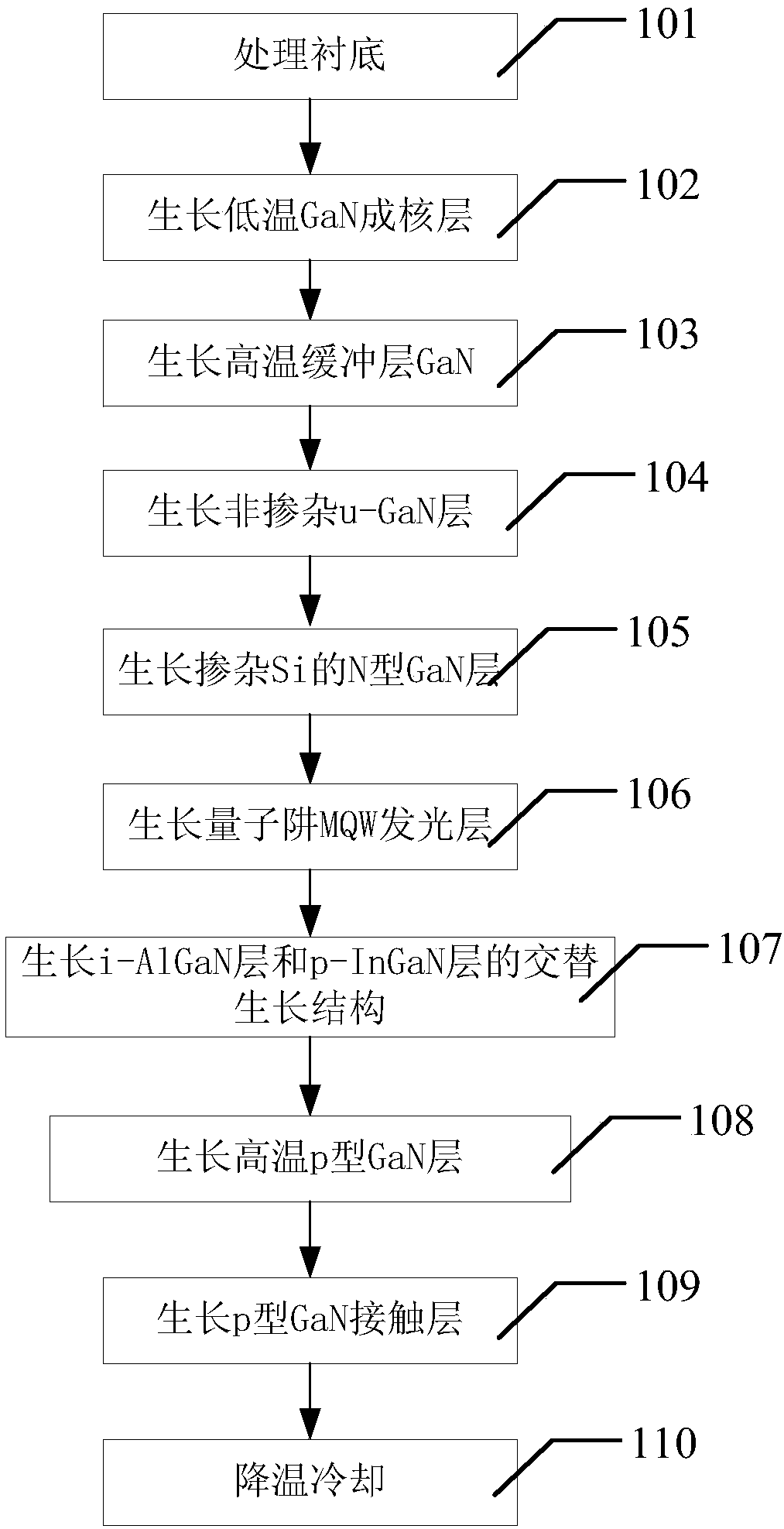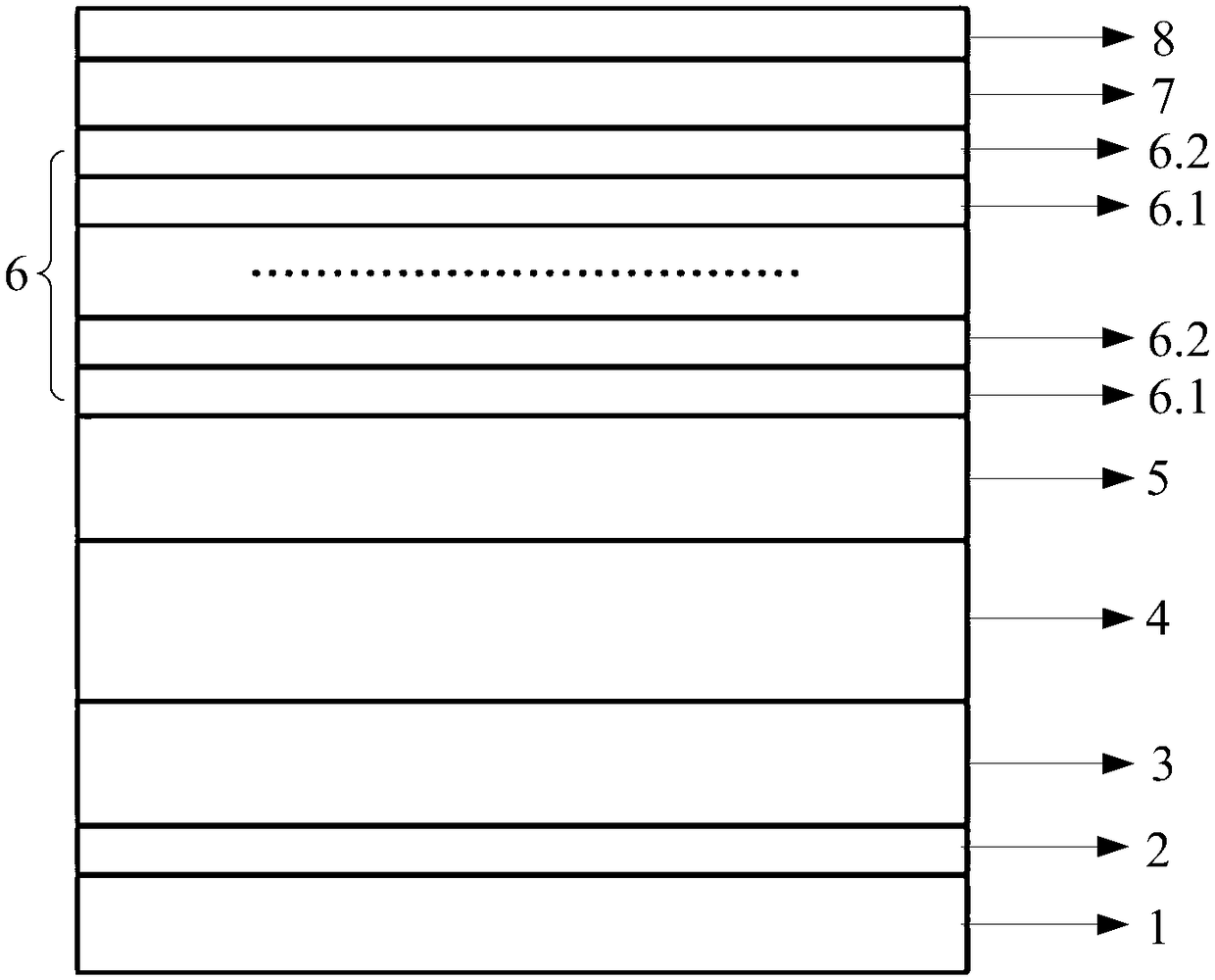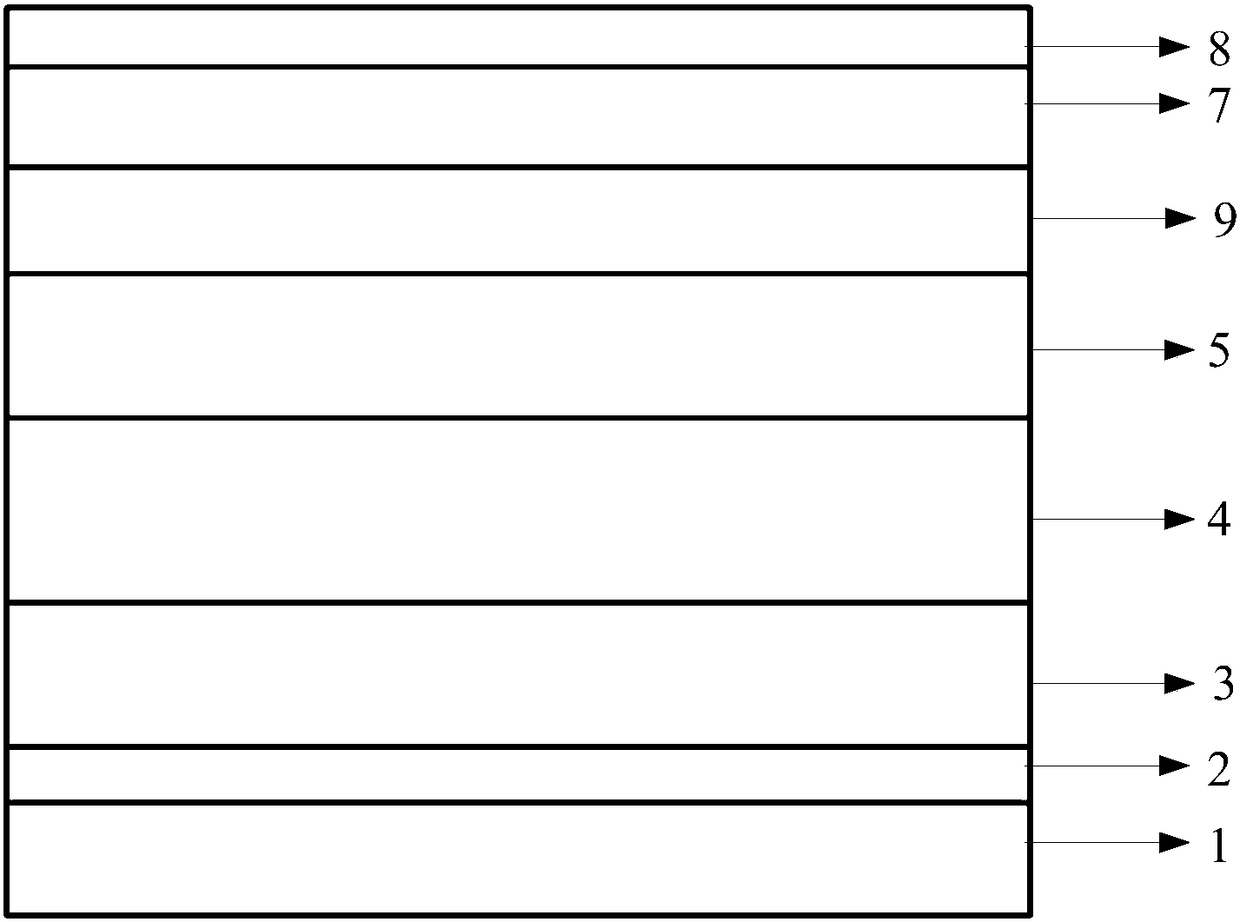led epitaxial growth method
A technology of epitaxial growth and growth temperature, applied in semiconductor devices, electrical components, circuits, etc., can solve problems such as low activation rate of dopants, lattice mismatch, and poor crystal quality of materials
- Summary
- Abstract
- Description
- Claims
- Application Information
AI Technical Summary
Problems solved by technology
Method used
Image
Examples
Embodiment 1
[0051] The invention uses VEECO MOCVD to grow high-brightness GaN-based LED epitaxial wafers. Using high-purity H 2 or high purity N 2 (purity 99.999%) mixed gas as carrier gas, high-purity NH 3 (purity 99.999%) as N source, metal-organic source trimethylgallium (TMGa) as gallium source, trimethylindium (TMIn) as indium source, and N-type dopant as silane (SiH 4 ), trimethylaluminum (TMAl) as the aluminum source, and the P-type dopant as magnesium dicene (CP 2 Mg), the substrate is (001) sapphire, and the reaction pressure is between 100Torr and 1000Torr. The specific growth method is as follows:
[0052] A kind of LED epitaxial growth method, see figure 1 , including: processing the substrate, growing a low-temperature GaN nucleation layer, growing a high-temperature buffer layer GaN, growing an undoped u-GaN layer, growing a Si-doped n-GaN layer, growing a light-emitting layer, and growing a high-temperature p-type GaN layer , growing a p-type GaN contact layer, coolin...
Embodiment 2
[0062] The application examples of the LED epitaxial growth method of the present invention are provided below, and its epitaxial structure can be found in figure 2 , growth method see figure 1 . Using VEECO MOCVD to grow high-brightness GaN-based LED epitaxial wafers. Using high-purity H 2 or high purity N 2 or high purity H 2 and high purity N 2 The mixed gas as the carrier gas, high-purity NH 3 As the N source, the metal-organic source trimethylgallium (TMGa) is used as the gallium source, trimethylindium (TMIn) is used as the indium source, and the N-type dopant is silane (SiH 4 ), trimethylaluminum (TMAl) as the aluminum source, and the P-type dopant as magnesium dicene (CP 2 Mg), the substrate is (0001) sapphire, and the reaction pressure is between 100torr and 1000torr. The specific growth method is as follows:
[0063] Step 101, processing the substrate:
[0064] The sapphire substrate is annealed in a hydrogen atmosphere to clean the surface of the substrat...
Embodiment 3
[0092] A conventional LED epitaxial growth method is provided below as a comparative example of the present invention.
[0093] The growth method of conventional LED epitaxy is (see the epitaxial layer structure image 3 ):
[0094] 1. Anneal the sapphire substrate in a hydrogen atmosphere to clean the surface of the substrate at a temperature of 1050-1150°C.
[0095] 2. Lower the temperature to 500-620°C and feed NH 3 and TMGa, grow a 20-40nm thick low-temperature GaN nucleation layer at a growth pressure of 400-650Torr.
[0096] 3. After the growth of the low-temperature GaN nucleation layer is completed, stop feeding TMGa and perform in-situ annealing treatment. The annealing temperature is increased to 1000-1100°C, and the annealing time is 5-10min; after annealing, adjust the temperature to 900-1050°C , continue to pass through TMGa, and epitaxially grow a high-temperature GaN buffer layer with a thickness of 0.2-1um, and a growth pressure of 400-650Torr.
[0097] 4. ...
PUM
 Login to View More
Login to View More Abstract
Description
Claims
Application Information
 Login to View More
Login to View More - R&D
- Intellectual Property
- Life Sciences
- Materials
- Tech Scout
- Unparalleled Data Quality
- Higher Quality Content
- 60% Fewer Hallucinations
Browse by: Latest US Patents, China's latest patents, Technical Efficacy Thesaurus, Application Domain, Technology Topic, Popular Technical Reports.
© 2025 PatSnap. All rights reserved.Legal|Privacy policy|Modern Slavery Act Transparency Statement|Sitemap|About US| Contact US: help@patsnap.com



